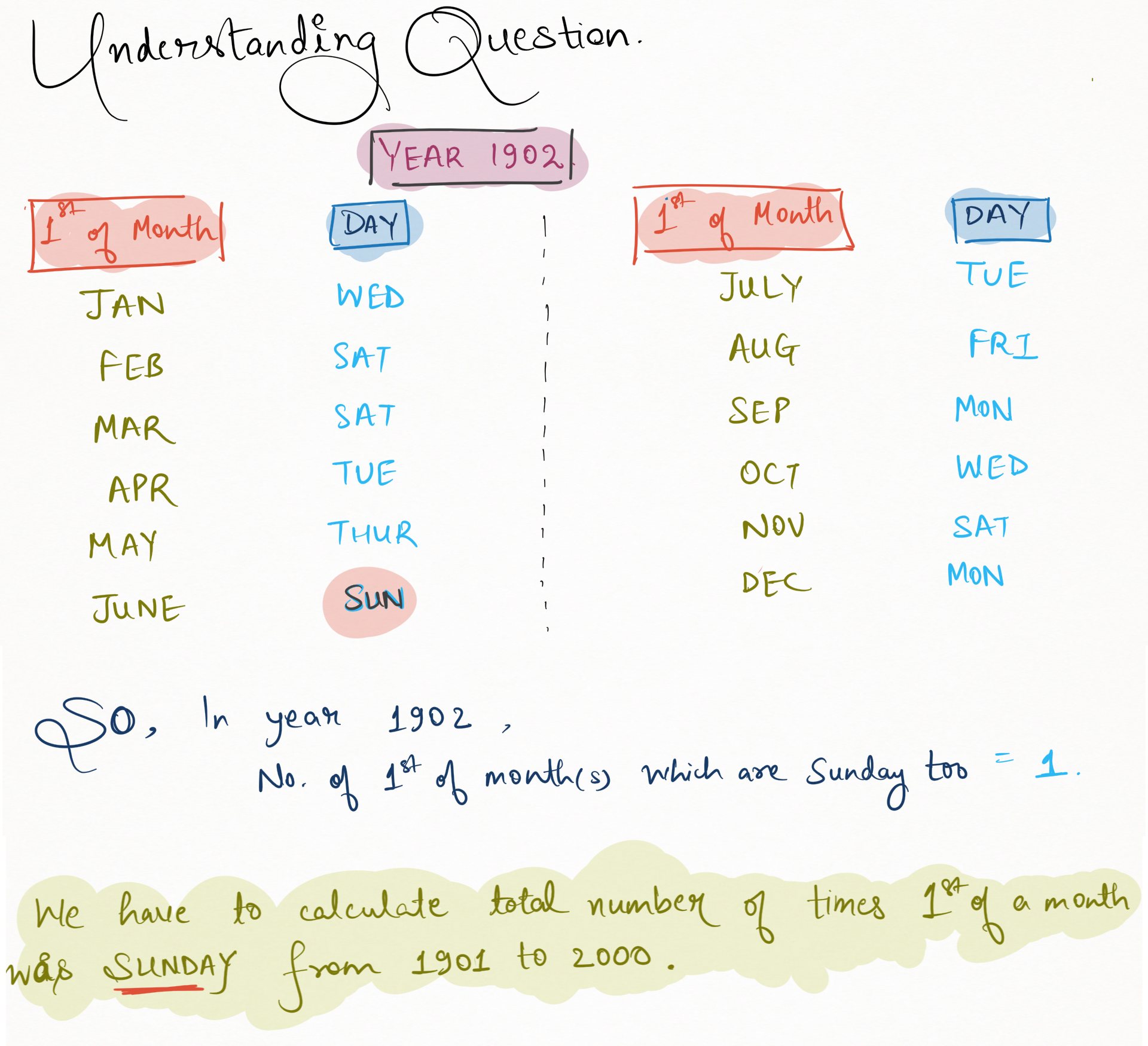Project Euler 19
Counting Sundays
How many Sundays fell on the first of the month during the 20th century (1 January 1901 to 31 December 2000)?
Approach 1
In Python, if we create a datetime variable y then, y.strftime("%a") will return the weekday of the date.
y=datetime(year,month,date)
weekday = y.strftime("%a")
- Using the function above, we can loop from 1901 to 2000, and for each year, we will check the 1st of every month.
- If we find the 1st of a month to be Sunday, we increment
sunday_countby 1.
from datetime import datetimesunday_count=0for j in range(1901,2001):for k in range(1,13):y = datetime(j,k,1)if y.strftime("%a")=='Sun':sunday_count+=1print(sunday_count)
Approach 2
A slightly better approach would be this.
Weekcode = { 0=Sunday, 1=Monday, 2=Tuesday, 3=Wednesday, 4=Thrusday, 5=Friday, 6=Saturday}
Generalized formula:
Weekcode on 1st of nth month of yth year = [ ( Weekcode on 1st of (n-1)th month of yth year ) + ( No. of Days in (n-1)th month ) ] % 7
- We make a
forloop from 1900 to 2000 and for every year. - We calculate the day on the 1st of each month by the generalized formula above.
- When we find the 1st of a month to be Sunday, we increment our
sunday_countby 1.
Weekcode = 1# Weekcode of 1st Jan 1900 is i.e. Mondaymonths = [31,28,31,30,31,30,31,31,30,31,30,31]# no. of days in each month ordered as they occurence in a year.sunday_count = 0# This is the sundays counterfor cur_year in range(1900,2000+1) :# for loop from 1900 to 2000# updating day count of Feb month according to the yearif (cur_year%4==0 and cur_year%100!=0) or (cur_year%400==0):months[1] = 29else:months[1] = 28for y in months:Weekcode = (Weekcode + y)%7if Weekcode==0 and cur_year>1900:sunday_count+=1print(sunday_count)
